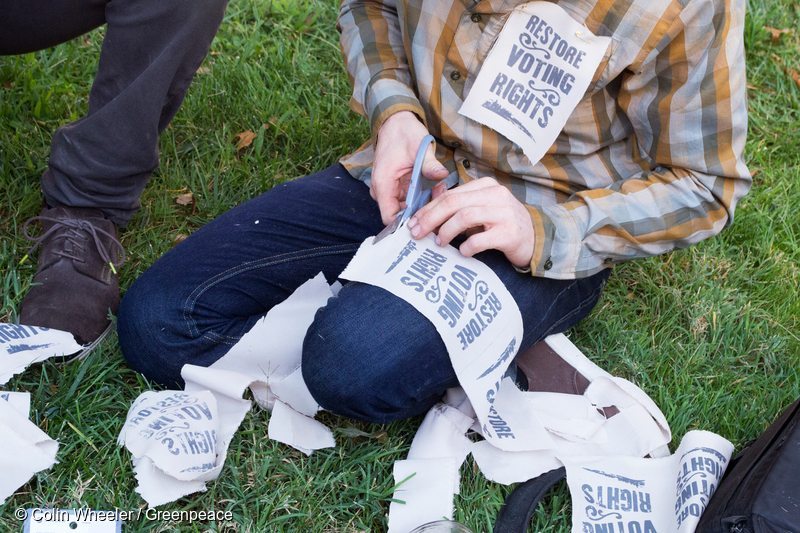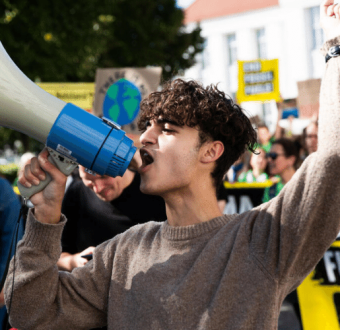Today — in a victory for justice, people power, and the right to vote — Maryland got a little bit closer to a democracy of, by, and for the people.
Thanks to the hard work of a local coalition led by Communities United and national support from groups like the Center for Popular Democracy, the Democracy Initiative, and many others, the Maryland state legislature voted today to restore voting rights to citizens with past convictions who have completed their sentences, overriding a veto from Maryland Governor Larry Hogan (R).
Overturning this veto means that more than 40,000 Americans will have their voting rights restored after having served their sentences and returning to their lives.
Voter suppression is on the rise across the country, from restrictive voter ID laws to a criminal justice system that disproportionately impacts black, brown, and low-income communities — communities also on the front lines of environmental harm and pollution.
This is true in Maryland, as well. For example, Baltimore, where a majority of the residents are black, has three times the national rate of lead poisoning among children. Meanwhile, Congress is slashing funding for lead abatement programs that would clean up this toxic problem.
Restricting access to the ballot box for ex-offenders who have served their sentences is just one of the “New Jim Crow” policies at work today keeping black and brown folks out of the voting booth. (For more on the racist impacts of these kinds of laws, check out “The New Jim Crow: Mass Incarceration in the Age of Colorblindness“ by Michelle Alexander.)
Our partners at NAACP put it this way:
“Throughout the country, an estimated 5.8 million American citizens are prevented from participating in the voting process,” said NAACP President and CEO Cornell William Brooks. “Nationally, one out of every 13 voting-eligible African Americans has been stripped of their voting rights.”
Restoring voting rights for people who are returning to their communities from prison is an important step towards a more just society that upholds citizens’ constitutional right to vote and their ability to address problems in their communities through our political system. The right to vote is a key tool in working to better our communities, including the fight for clean air, water, and a safe climate.
Emma Greenman, Director of Voting Rights and Democracy at the Center for Popular Democracy, said:
“Democracy is on the march in Maryland. The Maryland General Assembly’s vote to override Governor Hogan’s veto and restore the right to vote for formerly incarcerated citizens comes at a critical time for our democracy.
“The time has come to lift up the voices of those in Maryland and across the country who have been locked out of our democracy by unjust laws. Today in Maryland, because of the advocacy of a diverse coalition of organizations with formerly incarcerated citizens leading the way, more than 40,000 Marylanders have regained their fundamental right to vote and their voice in our democracy.”
Today’s victory in Maryland is a testament to the hard work of people organizing for justice and a democracy that represents all Americans. And that is something to celebrate.



